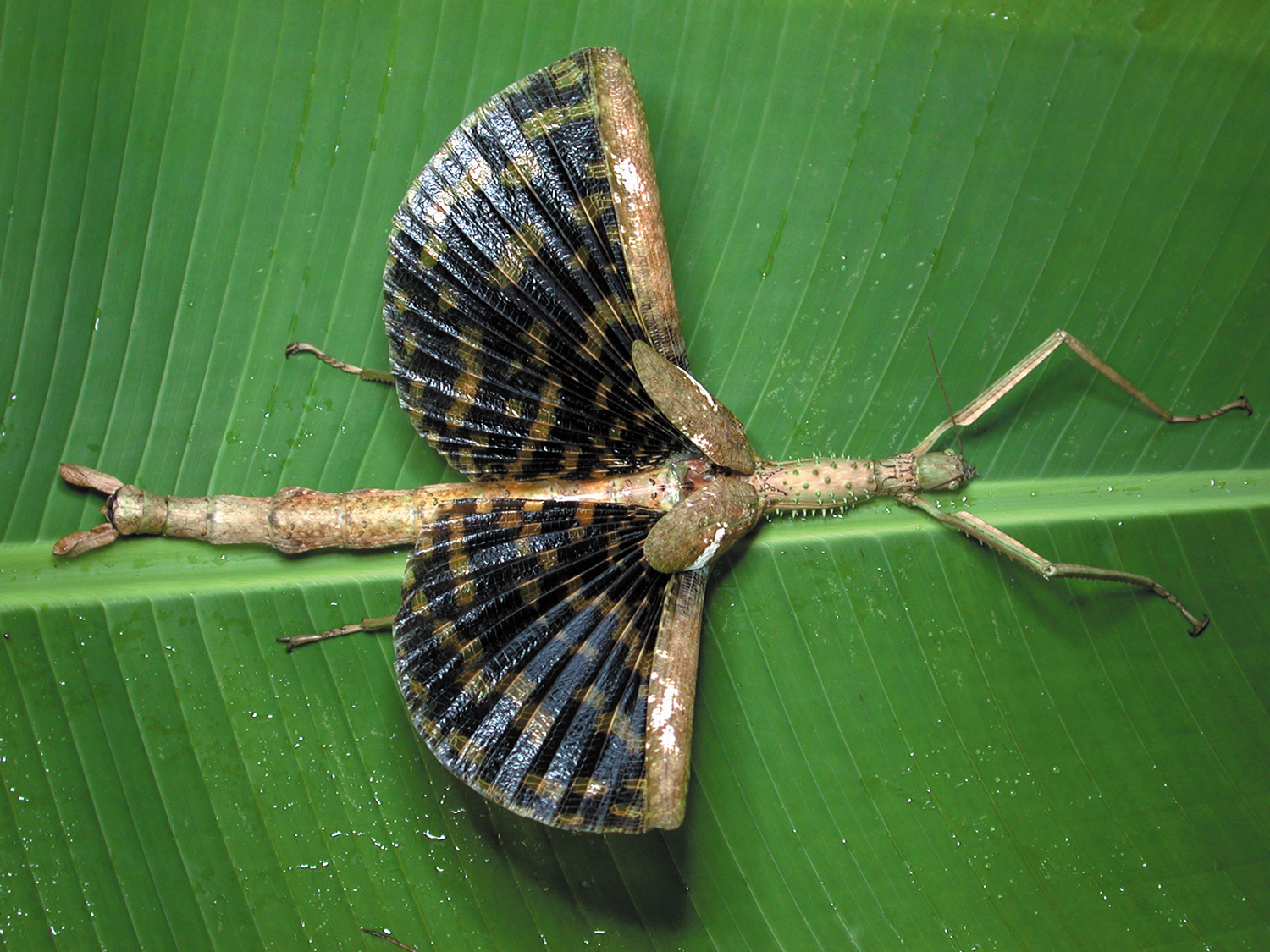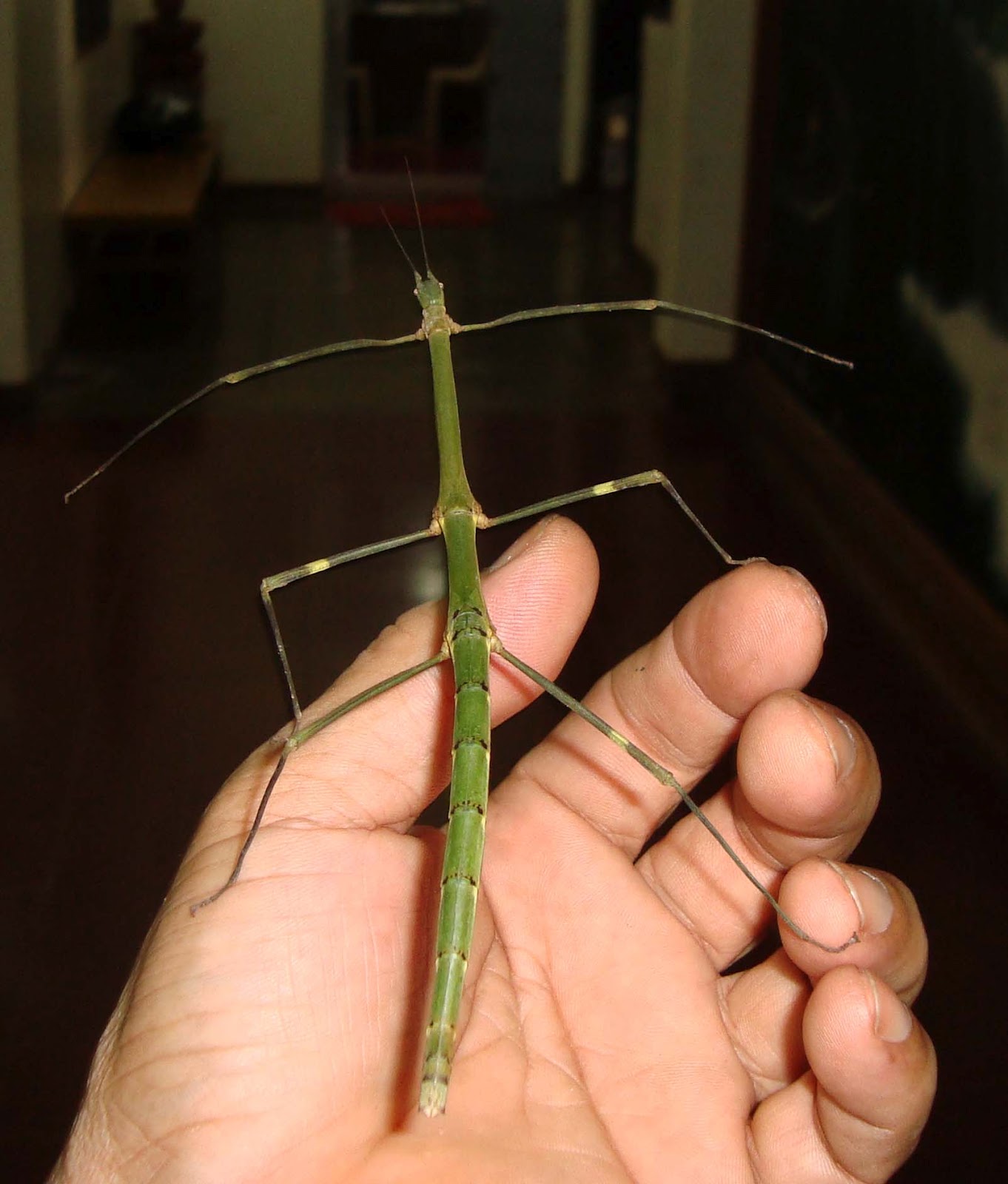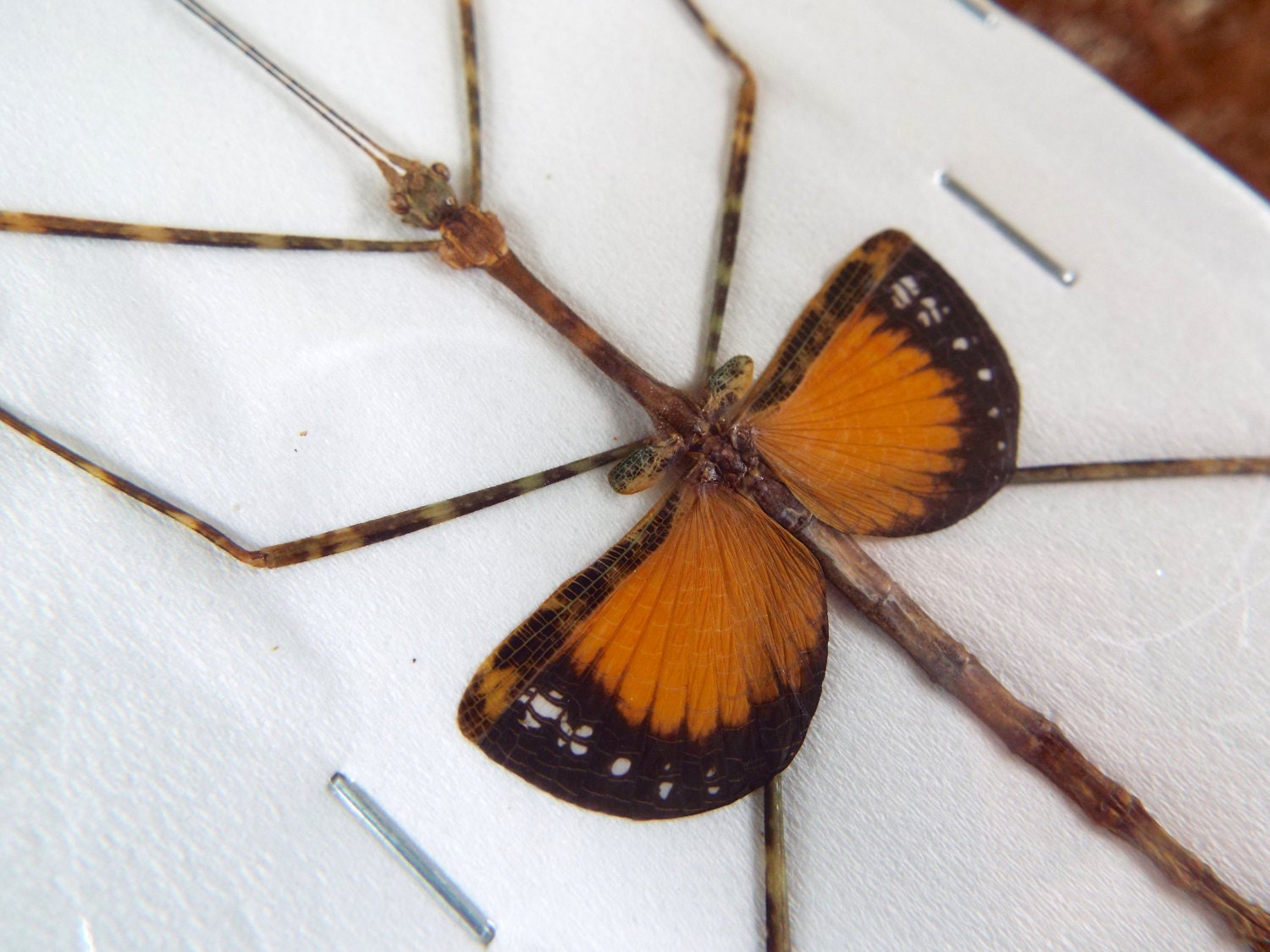Walking Stick Insect Flying

Hey there! Today, let's delve into the fascinating topic of stick insects and explore the wonders of nature. Stick insects are truly remarkable creatures that have captured the attention of scientists and nature enthusiasts alike. In this article, we'll dive deep into the world of these creatures and uncover their evolutionary journey. So, let's get started, shall we?
Stick insects, also known as phasmids, are a group of insects that belong to the order Phasmatodea. With their long and slender bodies, stick insects perfectly camouflage themselves among plants and branches, resembling twigs or sticks. The incredible resemblance to their surroundings serves as a clever defense mechanism against predators, helping them blend in seamlessly with their environment.
The Evolution of Stick Insects
Stick insects have undergone a remarkable evolutionary journey that spans millions of years. Their unique appearance and behavior have captivated scientists, who have been unraveling the secrets of their evolution. Let's dive into the fascinating story of stick insects and how they have adapted over time.
The Origins of Stick Insects
The origins of stick insects can be traced back to ancient times, with fossils dating back to the early Jurassic period, around 150 million years ago. These early ancestors of stick insects already exhibited some of the defining features seen in their modern-day counterparts. Over time, stick insects diversified and evolved to adapt to different environments and ecological niches.
Camouflage: Nature's Masterpiece
One of the most remarkable aspects of stick insects is their unparalleled camouflage abilities. Their bodies have evolved to mimic the appearance of twigs or sticks, providing them with excellent camouflage against predators. This remarkable adaptation allows them to avoid detection and increases their chances of survival in the wild.
Stick insects also exhibit incredible morphological adaptations that aid in their disguise. Some species have flattened bodies, while others possess spines or tubercles, further enhancing their resemblance to sticks or twigs. These adaptations, combined with their slow and deliberate movements, make them almost indistinguishable from their surroundings.
The Benefits and Advantages of Stick Insects
The fascinating world of stick insects offers several benefits and advantages, both to the ecosystem and to scientific research. Let's explore some of the significant advantages these incredible creatures bring:
- Ecological Importance: Stick insects play a crucial role in various ecosystems. They contribute to nutrient cycling by aiding in the decomposition of plant material. Additionally, they serve as a food source for numerous predators, helping maintain the delicate balance within the food web.
- Scientific Research: Stick insects are of great interest to scientists studying the intricate mechanisms of evolution and natural selection. Their remarkable camouflage abilities and adaptations provide valuable insights into the processes that shape biodiversity.
- Education and Awareness: These captivating creatures spark curiosity and encourage an interest in the natural world. They serve as excellent educational tools, captivating the hearts and minds of people of all ages.
Stick insects truly exemplify the wonders of nature and serve as a testament to the diverse array of life on our planet.
The Conclusion
In conclusion, stick insects are a mesmerizing example of nature's creativity and adaptability. Through millions of years of evolution, they have developed remarkable camouflage abilities, enabling them to survive and flourish in various habitats. Beyond their incredible adaptations, these creatures contribute to the overall balance and beauty of our ecosystems.
We hope this journey into the world of stick insects has left you in awe of nature's wonders. Next time you spot a twig-like creature blending perfectly with its surroundings, take a moment to appreciate the extraordinary journey of these remarkable insects.
People Also Ask
Q: What do stick insects eat?
A: Stick insects primarily feed on leaves, preferring those from trees and shrubs. They have specific dietary requirements depending on their species.
Q: How long do stick insects live?
A: The lifespan of stick insects varies among species but typically ranges between several months to over a year.
Q: Do stick insects fly?
A: While some stick insect species possess wings, not all of them have the ability to fly. Flying capabilities vary across different species.
Q: Are stick insects harmful?
A: Stick insects are harmless to humans and generally do not pose any threats. They are gentle creatures that play important roles in their respective ecosystems.
Q: Can stick insects regrow their limbs?
A: Yes, stick insects have the remarkable ability to regenerate lost limbs. This adaptation helps them recover from injuries caused by predators or accidents.
Q: Where can I find stick insects?
A: Stick insects can be found in various habitats around the world, including forests, grasslands, and even gardens. Some species are native to specific regions, while others have been introduced to new environments.
Q: How many species of stick insects are there?
A: Currently, over 3,000 known species of stick insects exist worldwide. However, it is believed that many more are yet to be discovered.
We hope these answers have satisfied your curiosity about stick insects. If you have any more questions, feel free to ask!
If you are looking for Facts About the Walking Stick Bug | Sciencing you've came to the right place. We have 25 Pics about Facts About the Walking Stick Bug | Sciencing like The beauty of Goliath stick insect (Eurycnema goliath). The third, Madagascar giant jumping stick insect | Stick insect, Insects, Fauna and also Walking Stick Insect Acrobatics.. Here it is:
Facts About The Walking Stick Bug | Sciencing
Flying Stick Insect - Stock Image - F031/6070 - Science Photo Library
 www.sciencephoto.com
www.sciencephoto.com insect
"Walking Stick Insect" By RLHall | Redbubble
insect stick walking redbubble
Walking Stick Insect - A Photo On Flickriver
 www.flickriver.com
www.flickriver.com insect insects
Flying Walking Stick (insect!) | Skywalk - Monteverde Costa … | Flickr
 www.flickr.com
www.flickr.com walking
The Walking Stick Is One Of The Oldest Forms Of Insect Known To Man
 www.pinterest.com
www.pinterest.com Walking Stick Insect Acrobatics.
 www.beelistener.co.uk
www.beelistener.co.uk acrobatics chilcott
Children's Stick Insect From Australia - What's That Bug?
stick insect insects australia mantis praying bug wings children beautiful bugs walking childrens winged leaf sticks fairy goliath flying tumblr
Living With Nature - School On Blog By Dr. Abercio V. Rotor: A World Of
 avrotor.blogspot.com
avrotor.blogspot.com stick walking insects green glimpse gs ust queer into uplb
Pin On Small Creatures
 www.pinterest.com.au
www.pinterest.com.au stick madagascar insect fallax walking insects creatures bug sticks wordpress creature
Walking Stick Insect Stock Photo - Alamy
 www.alamy.com
www.alamy.com Madagascar Giant Jumping Stick Insect | Stick Insect, Insects, Fauna
 www.pinterest.com
www.pinterest.com insects madagascar
Fun Facts For Kids About Stick Insect
 easyscienceforkids.com
easyscienceforkids.com stick insect kids facts web fun
Flying Stick Insect | Flickr - Photo Sharing!
 flickr.com
flickr.com insect stick flying flickr
Stick Insect | Sean Crane Photography
stick insect cloud leaf
10 Fascinating Facts About Stick Insects
/GettyImages-581746281-59f28a53685fbe00116418fc.jpg) www.thoughtco.com
www.thoughtco.com stick insect insects leaf facts phasmida order getty room
Pet Walking Stick Insects
The Beauty Of Goliath Stick Insect (Eurycnema Goliath). The Third
 www.pinterest.com
www.pinterest.com insects insect goliath bugs insectos insectes raros bellos insecto palo scientificphilosopher
Giant Walking Stick (Insect) | Animals & Insects | Pinterest
stick insect walking insects giant bug animals part female sticks but males captivity reared mates kin occasionally individuals never true
Walking Stick Insect, Insect Photography, Stick Insect
 www.pinterest.com
www.pinterest.com walking stick bug insect bugs
What Do You Call These? | Page 1 | Hogwarts Extreme
stick walking insect bug sticks animals insects animal coloration protective bugs camouflage twigs mimicry use name wypr among call these
Do Stick Bugs Fly? A Look At Their Use Of Wings | Keeping Bugs | Stick
 www.pinterest.com
www.pinterest.com insects
OVERSTOCK: Orange Winged Stick Insect Pseudodiacantha By InsectArt
 www.etsy.com
www.etsy.com Evolution Revolution - Creation.com
 creation.com
creation.com stick insect insects wings walking costa bug sticks rica live fly phasmatodea creation gigas phasma orders lose retaking flight use
Science — Deborah Munro, Author
 deborahmunroauthor.com
deborahmunroauthor.com Stick walking insects green glimpse gs ust queer into uplb. Fun facts for kids about stick insect. Walking stick insect, insect photography, stick insect
Post a Comment for "Walking Stick Insect Flying"